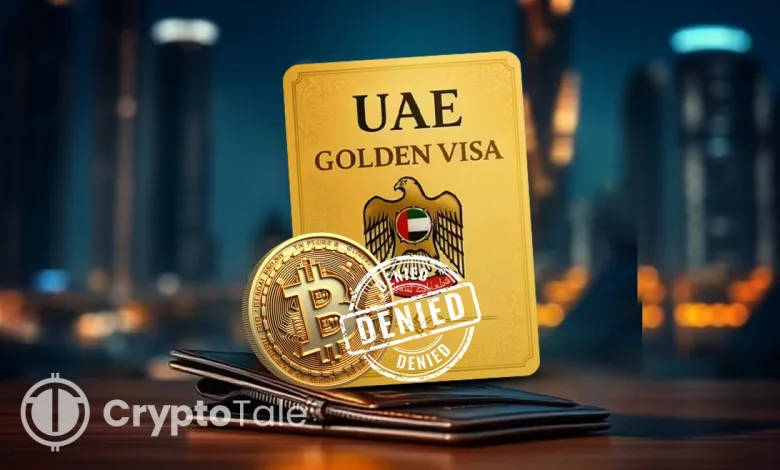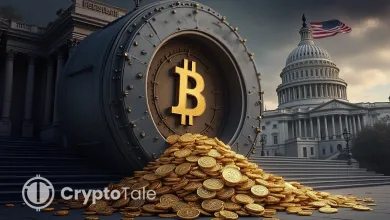UAE Denies Golden Visas for Crypto Investors, Clarifies Rules

- UAE denies golden visas for crypto investors, refuting TON’s residency staking claims.
- ICP, VARA, and SCA confirm digital assets are not part of UAE visa eligibility rules.
- TON CEO insists validator visas are genuine, replying directly to CZ’s public inquiry.
The United Arab Emirates has denied recent claims that cryptocurrency investors can qualify for its Golden Visa program. The announcement follows confusion stirred by The Open Network (TON), which recently promoted a visa offering linked to staking Toncoin.
According to Emirates News Agency, three key regulators issued a joint statement on Monday. These were the Federal Authority for Identity, Citizenship, Customs and Port Security (ICP), the Securities and Commodities Authority (SCA), and the Virtual Assets Regulatory Authority (VARA). The agencies clarified that golden visas are granted under specific categories, which digital currency investors are not part of.
UAE Denies Crypto Link to Visa Program
The clarification came after The Open Network (TON) launched a program offering UAE golden visas through a staking model. The offer claimed that staking $100,000 worth of Toncoin for three years could unlock UAE residency. The program also included a $35,000 processing fee. TON stated that applicants would retain control of their funds via a smart contract.
The project added that the visa would extend to family members without extra charges beyond standard fees. It promised processing in under seven weeks. Some users saw it as a lower-cost alternative to traditional routes, which often demand real estate investments of at least $540,000.
However, UAE regulators responded, saying that golden visas are only granted to specific categories. These include real estate investors, skilled professionals, entrepreneurs, scientists, creatives, students, and retirees. They also stated that TON is not licensed or regulated by any UAE authority. The SCA reiterated that crypto investments follow their own framework and are unrelated to visa eligibility.
TON Defends Claims Despite Scrutiny
Despite the UAE’s clarification, TON CEO Max Crown stood by the program. He responded to Binance founder Changpeng Zhao (CZ), who questioned the legitimacy of the offer on X. CZ raised concerns over whether the program was officially recognized or simply a private service.
CZ pointed out that the site gives the impression that a $135,000 total investment guarantees a golden visa. He also mentioned conflicting reports about RAK DAO’s involvement and noted that the TON Foundation lacks licenses for regulated staking activities in the UAE.
In reply, Max Crown said the program is “definitely real” and confirmed that TON validators have already received valid 10-year UAE golden visas. He invited CZ to message him directly for details.
Toncoin surged over 10% after the visa program was first announced, but dropped back to $2.8 after the UAE’s official denial. The price move reflects growing uncertainty among investors and users about the program’s authenticity. The UAE urged the public to avoid unofficial offers and to use government portals for accurate information. Authorities warned against misleading promotions tied to digital assets or staking programs.
Related: Ripple, UAE Officials Talk Digital Payments & Innovation
The situation highlights the growing intersection between crypto-based services and national policy. While blockchain projects may explore alternative ways to attract users, official regulatory frameworks remain firm.
The golden visas are part of the UAE’s policy for long-term residency, aiming to attract high-value residents. However, at the moment, cryptocurrency investors do not find their category in the list of recognized ones. Officials also emphasized that staking remains a regulated activity. They stated that entities engaging in staking-based investment services must comply with local licensing procedures.
As the UAE becomes a regional hub for digital assets, regulators continue to enforce strict rules around financial services. The TON episode now serves as a cautionary case for crypto ventures offering residency-linked services without formal government backing.




